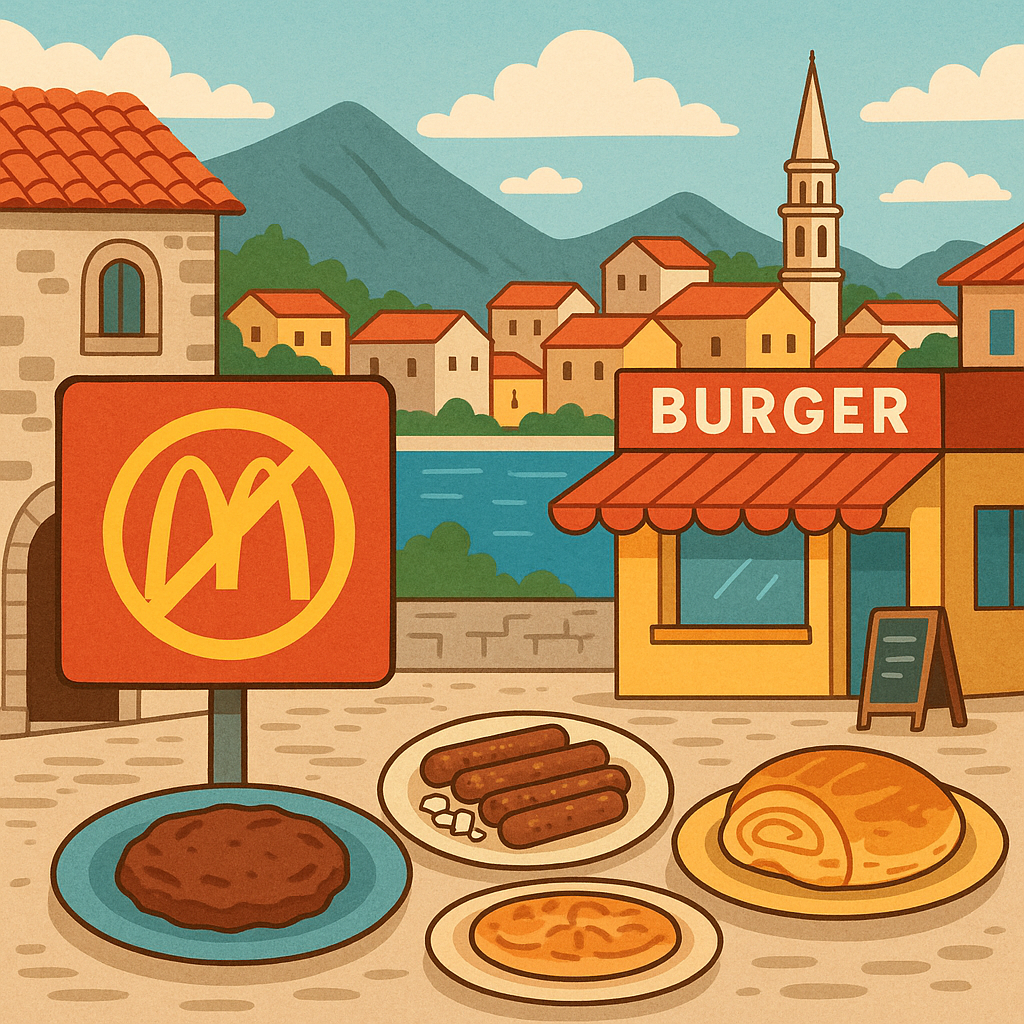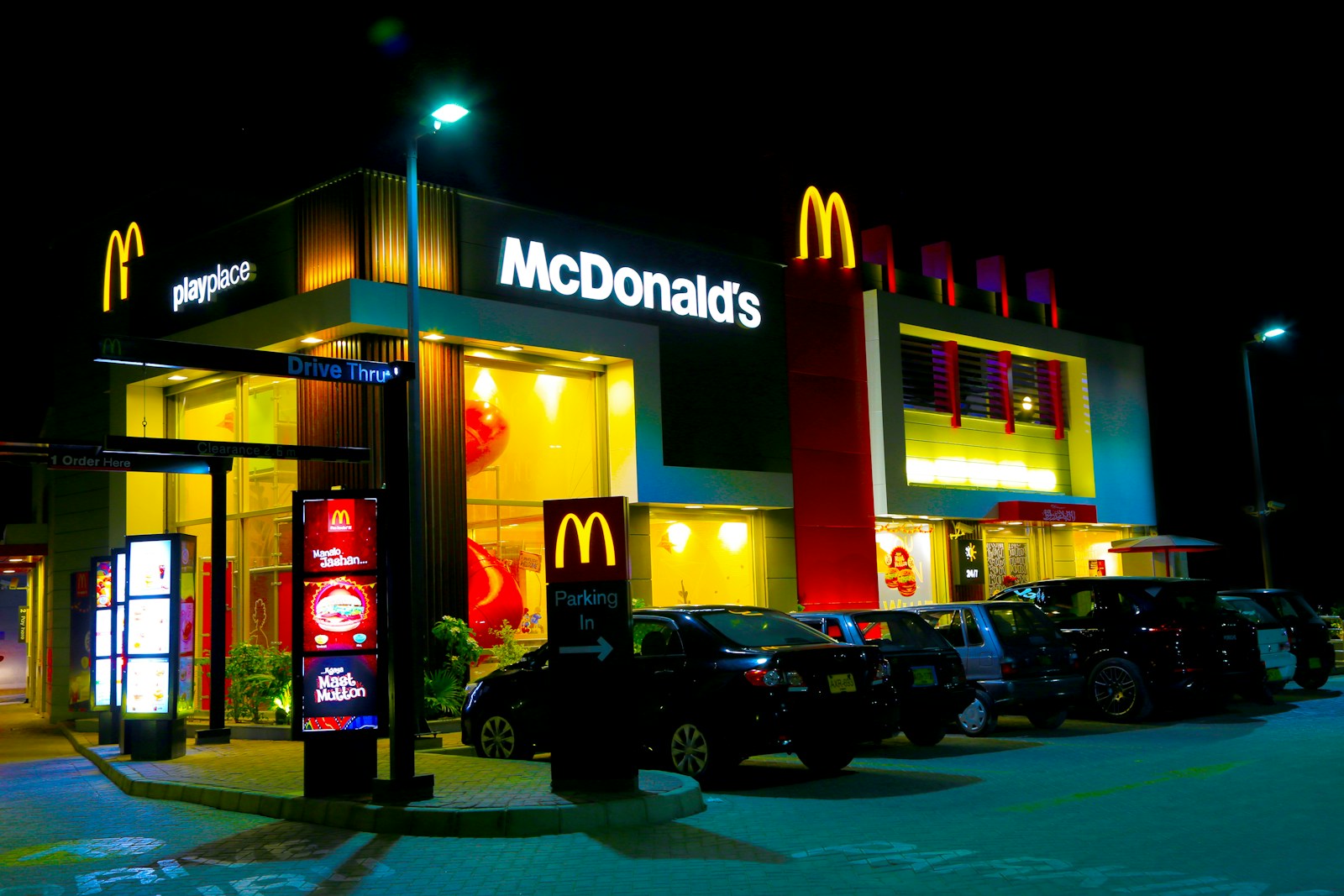Montenegro, our favourite nation, is known for its rich history and stunning landscapes. Despite the booming tourism in areas like the Bay of Kotor, you won’t find a McDonald’s anywhere in the country – so if you are an aficionado of the Big mac, you may need to pack them before you come. But why? Let’s dive into the fascinating story behind this fast-food mystery.
The Brief Appearance of McDonald’s
Back in 2003, McDonald’s made a bold move by opening a mobile store in Podgorica, the lively capital of Montenegro. This temporary location was a hit with the locals during the summer months, attracting plenty of hungry customers. Yet, despite its popularity, the golden arches disappeared after just three months, never to return.
Government Actions and Local Business Support
So, what happened? It appears the Montenegrin government played a key role in this decision. They stepped in to prevent international chains like McDonald’s from setting up shop permanently. The main reason? To give local businesses a fighting chance.
Speculations and Theories

Over the years, various theories have emerged about why McDonald’s hasn’t been able to secure a foothold in Montenegro. Some believe it was due to health concerns for citizens, while others think it was an effort to keep American companies at bay following NATO’s bombings in 1999. However, with the influx of tourists and the presence of other fast-food options, these theories don’t seem to hold much weight today.
The Local Business Angle
The most plausible explanation revolves around the support for local businesses. Rumors suggest that local restaurant owners might have collaborated to persuade the government to block McDonald’s, viewing it as a significant threat to their livelihoods. Although this theory remains unconfirmed, it highlights the strong community spirit in Montenegro.
Official Statements
In response to the ongoing speculation, the Montenegrin government issued a statement to The Daily Mail, clarifying that no company, including McDonald’s, is prohibited from doing business in Montenegro. They also debunked many of the claims made in previous reports.
Conclusion
Several countries around the world do not have a McDonald’s, often due to cultural, economic, or political reasons. In places like Iran and North Korea, McDonald’s is absent because of government opposition to Western influence. Iceland saw the closure of its McDonald’s restaurants during the 2009 financial crisis, with high import costs making operations unsustainable. Bolivia rejected the fast-food chain due to low sales and public preference for local cuisine. Bermuda and Zimbabwe have strict regulations or cultural priorities that have kept out global franchises like McDonald’s. Similarly, countries such as Yemen, Afghanistan, and Bhutan have never hosted a McDonald’s, reflecting a mix of local traditions, economic conditions, and government policies.
While the true reasons behind McDonald’s absence in Montenegro may never be fully known, one thing is clear: the country’s efforts to protect and promote local businesses have created a unique and vibrant culinary scene. So, when you visit Montenegro, skip the fast food and enjoy the delicious local flavors that make this destination truly special.







